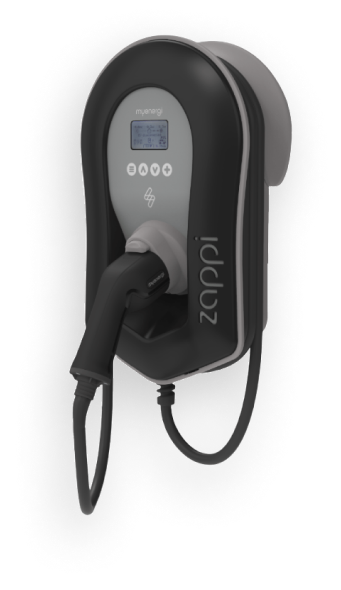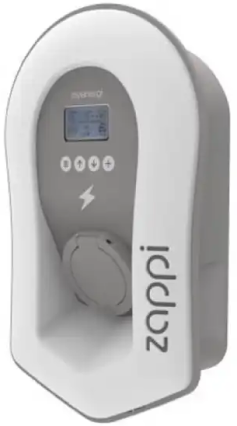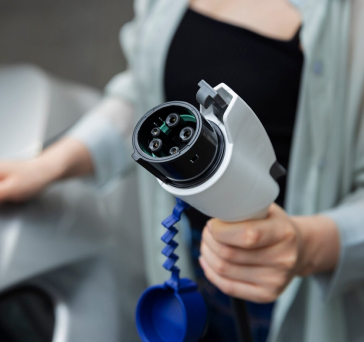

Zappi Eco Smart EV
Charge Point
- Compatible with solar energy
- Convenient
- Three charging modes: Eco, Eco+ and Fast
- Cable attached to plug into the EV with ease
- 7kW power rating
- Supply and Installation Included
Zappi Eco Smart EV
Charge Point
- Compatible with solar energy
- Flexible
- Three charging modes: Eco, Eco+ and Fast
- Choose your own cable
- 7kW power rating
- Supply and Installation Included


Typical charging times for different
EV battery sizes
| Average EV Battery size | 25kWh | 50kWh | 75kWh | 100kWh | 200kWh |
| Charge point power output 7.4 kW | 3h 45m | 7h 45m | 10h | 13h 30m | 59h 15m |
Benefits of EV chargers

Fast and convenient charging
Start each day with a full tank. Hassle free.

Sustainable energy
EV’s when charged from renewable resources produce zero emissions.

Save money
Charging an electric vehicle is cheaper than using traditional fuels. Many electricity providers offer reduced rates during off-peak hours, typically overnight.
Electric Vehicle charge point grant for renters and flat owners.
Live in a rented property or own a flat
The property has designated off-street private parking
Lease or own an approved electric vehicle
FAQS
That depends on your preference. A tethered charger comes with a fixed cable attached to the charge point whereas untethered charges have a detachable cable. A tethered charger also cost more as the cable is included but you’ll need to buy a cable if you go with the untethered option.
Type 1 chargers are single phase only and common in the US. They have 5-pins and typically come with a power rating of 3.7kW or 7kW.
Type 2 chargers are generally single phase but can also carry three phase power. They are more common in Europe and have 7-pins. They typically come with a power rating of 3.7kW or 7kW but can go as high as 22kW (three phase).
This depends on the power rating of your charge point and the battery size of your EV. The easiest way to calculate this is by dividing your EV’s battery size by the electric charger’s power rating. For example, a 50kWh battery will take under 8hrs to charge using a 7kW charging point.
This depends on the current unit price of electricity and the size of your EV battery. The easiest way to calculate this is to multiply the unit rate by the size of the EV battery. For example, if you charge a 50kW battery and pay 28p per kWh, it will cost you £14 to charge your battery fully.




